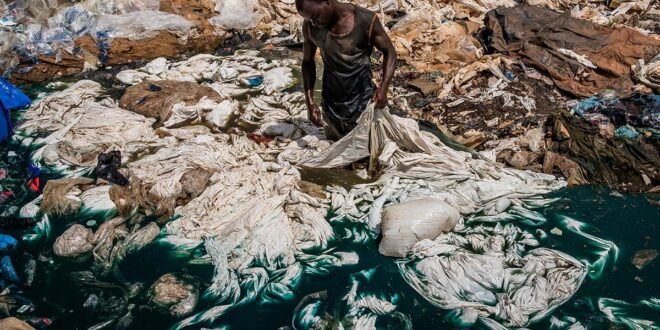Lake Victoria Faces Critical Environmental Crisis
A recent scientific study has raised serious concerns about the declining health of Lake Victoria, one of the largest freshwater lakes in the world. The findings highlight the urgent need for action to protect the lake, which supports over 40 million people across Kenya, Uganda, and Tanzania. These communities rely on the lake for food, income, and daily life, making its health a matter of global significance.
The study, commissioned by the Lake Victoria Basin Commission (LVBC), involved a month-long regional assessment that uncovered alarming levels of pollution. The research focused on areas near major urban centers, where contamination is increasing rapidly. This pollution poses significant risks to livelihoods, food security, and public health, with the nearshore waters of the lake being particularly affected.
Key Findings from the Study
Researchers collected water samples from more than 44 sites, including cities such as Kisumu, Kampala, Entebbe, and Mwanza. These locations are under the most pressure from human activity. The samples were tested both in the field and in specialized laboratories for various parameters, including temperature, turbidity, pH, dissolved oxygen, and photosynthetically active radiation.
The results revealed troubling trends. Elevated levels of nitrogen and phosphorus—nutrients known to cause harmful algal blooms—were found alongside increasing concentrations of silica, alkalinity, and suspended solids. Chemical oxygen demand, an indicator of organic pollution, was also measured, along with heavy metals such as mercury, arsenic, and lead in high-pollution zones.
In addition to chemical analysis, scientists examined the biological aspects of the lake. They monitored microscopic algae, or phytoplankton, to understand how pollution is impacting the aquatic food chain. This comprehensive approach provided a real-time snapshot of the lake’s condition, offering clear evidence of the environmental challenges it faces.
Local Communities Speak Out
The study’s findings align with what local communities have long observed. Fishermen in Kisumu report that fish are disappearing from traditional fishing grounds, driven away by oxygen-deprived, polluted waters. “It’s harder and harder to earn a living. The fish are gone where we used to cast our nets,” said one local fisherman, echoing the concerns of many who depend on the lake for their families’ sustenance.
Dr. Benjamin Kyalo, Kenya’s deputy director of water resources, emphasized that pollution is concentrating around urban areas, leading to the displacement of fish and threatening food security. For Uganda, the study highlights growing challenges for infrastructure and water treatment systems. Dr. Obubu Peter, Uganda’s assistant commissioner for water quality, noted that the region hasn’t seen a study of this scale in over 20 years. He warned that current systems are not equipped to handle the level of pollution, signaling a critical point that requires immediate attention.
A Call for Regional Cooperation
Tanzania’s assistant director at the Ministry of Water, Monica Mushi, called for collective responsibility among the three East African nations. She stressed that Lake Victoria does not belong to one country, and actions taken upstream directly impact those downstream. “We must act together—to protect our people and the generations to come,” she urged.
The study was supported by the German Development Agency (GIZ). Cosmus Muli, GIZ’s technical adviser, emphasized the importance of evidence-based environmental action. “Effective governance starts with data. This report gives us the knowledge we need to guide policy, investment, and cooperation,” he said.
Looking Ahead: A Wake-Up Call for East Africa
Dr. Masinde Bwire, LVBC executive secretary, described the findings as a “wake-up call” for East Africa. He emphasized that without measurement, it is impossible to address environmental issues. Now that the evidence is clear, political will and cross-border unity are essential to safeguard the future of Lake Victoria.
The study’s findings will be included in the 2025 ‘State of the Lake Victoria Basin Report.’ This document is expected to shape policy, guide infrastructure investment, and drive environmental planning for years to come.
Immediate Action Required
Lake Victoria is in ecological distress. Pollution from urban waste, agriculture, and industry is overwhelming its waters, especially in areas near major cities. The damage threatens not only fish stocks and biodiversity but also the livelihoods and health of over 40 million East Africans. Scientists are calling for urgent, data-driven action and increased collaboration between Kenya, Uganda, and Tanzania. The lake’s future now depends on the region’s ability to act as one.
 Info Malang Raya Its All About World News
Info Malang Raya Its All About World News




